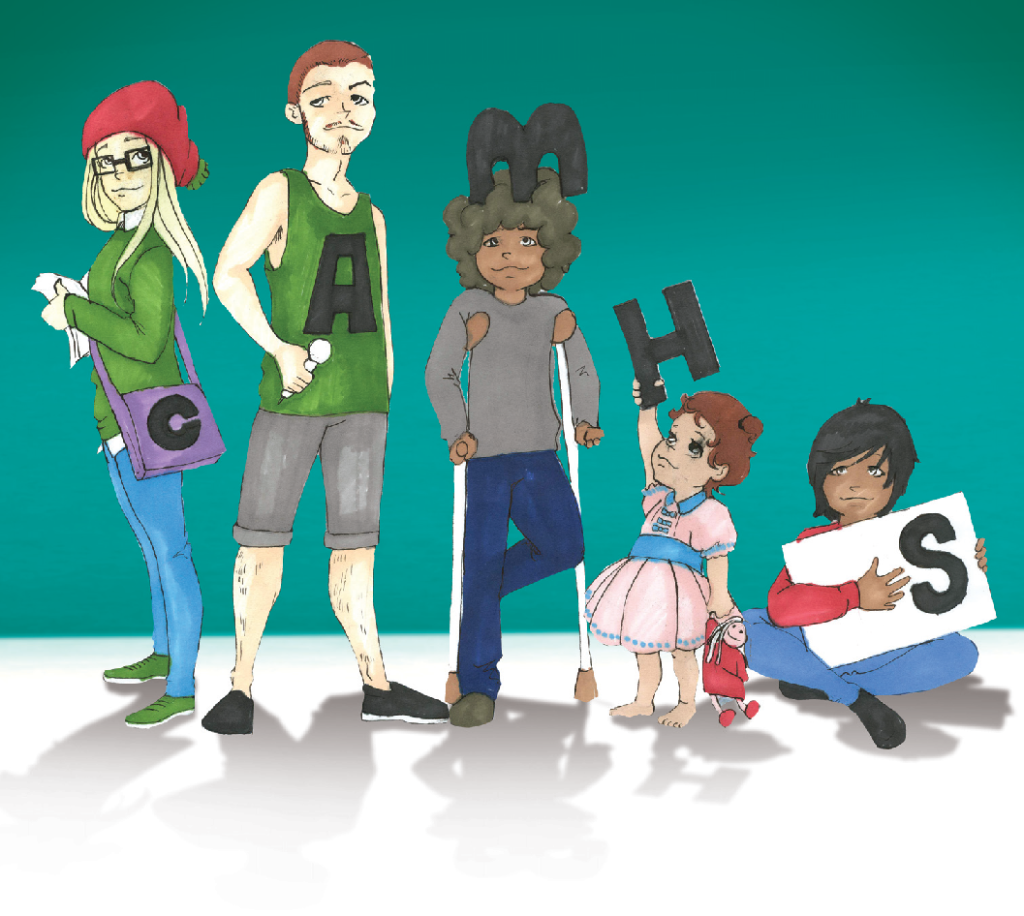
What is mental health?
Mental health is to do with how we think and feel, how we manage these thoughts and feelings, and how we cope with these thoughts and feelings.
What is CAMHS?
CAMHS stands for Child and Adolescent Mental Health Services, CAMHS will work with you and your family when you are feeling sad, worried or troubled. We aim to support you to improve your mental health and wellbeing
Is there anything I can do while I wait for my appointment?
While you are waiting for your appointment, some people find it useful to write down the things they want to say or ask in their first appointment. If you would like more information during this time there is a list of useful websites on this leaflet. If your situation changes while you are waiting, you can contact the service to talk about how we can help.
What will happen at my first session?
At your first appointment you will meet someone experienced in working with children and young people with mental health problems.
This could be a child and adolescent mental health services (CAMHS) practitioner nurse, psychologist, occupational therapist, social worker or psychiatrist.
We will talk about why you have come to CAMHS, your current difficulties and how to work out how we could help and support you. We will use ‘rating scales’ to help us assess your mental health and wellbeing. These include:
Outcome Rating Scales (ORS)/Child Outcome Rating Scales (CORS)
The ORS/CORS is a simple, four-item session by session measure, designed to assess distress and help measure progress in four areas of life functioning.
The scale asks you to put a cross on the line to indicate whether things are going well (further towards the happy face) or not so well (further towards the unhappy face).
What happens next?
During your first appointment we will decide together if CAMHS is right for you
If it is, you will be offered further appointments with the right person to help you.
We will work together to help you feel better and set goals so that you know how you are progressing.
You may be seen:
- on your own;
- with your family or parent/carer;
- in group therapy (young people with similar difficulties seen together in groups).
We will plan your care with you and your family and write this in a document called ‘my care plan’. This will tell you about everyone’s role in your care.
Who is involved in your care will depend on your needs. If you would prefer to meet with either a male or female member of staff then let us know and we will try our best to arrange this.
It may also be helpful to be seen alone without other family members present. Who is involved will depend on your needs and wishes.
We will arrange regular meetings with you to discuss how your recovery is going and the progress you are making towards achieving your goals.
Where will you see me?
We will work with you to arrange meetings at a time and place that is convenient for you.
This may include arranging meetings in a variety of locations such as your school or home, your GP practice or local CAMHS base.
Confidentiality
What happens to my information?
Our request…
During treatment, you may be asked to complete questionnaires about how you feel and how much progress you are making towards achieving your goals. WE will also ask you how helpful you think the service is.
We would like your permission to use answers from these questionnaires, and information about the care you receive, to understand how we can improve CAMHS.
My CAMHS records
You can ask to read and have the information we hold about you. Please refer to our Data Protection Act 2018 (General Data Protection Regulation 2016) page on our website or ask to see a copy of our leaflet ‘L1009 Privacy Notice – a guide for service users’.
Tees, Esk and Wear Valleys NHS Foundation Trust is registered under the Data Protection Act 1998 to store and use personal information.
Where can I find information or support?
- Information about the national project, Children and Young People’s Improving Access to Psychological Therapies (CYP IAPT)
- Information for young people about emotional and mental health issues on the YoungMinds website.
- Mental health information from the Royal College of Psychiatrists
- Information about different treatments in the booklet ‘Choosing what’s best for you’ on the Anna Freud website.
- Free and confidential telephone support service for children and young people: ChildLine Tel. 0800 1111
- Information and advice for young people aged 13 to 19: Connexions
- 24 hour confidential emotional support to anyone who is in crisis: Samaritans Tel. 08457 909090
- Information about drugs and where to get support: Ask Frank.
L684, V6, 06/06/2018 (archive 06/06/2021)